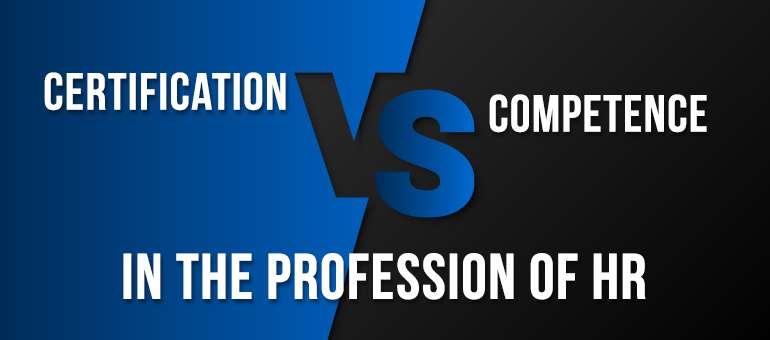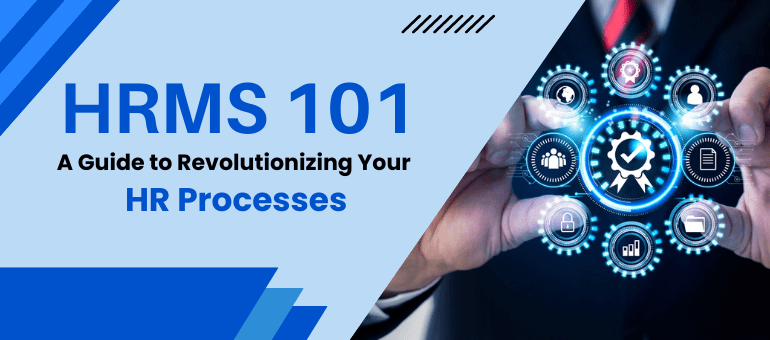Certification or competence is often a hard choice to make. For an HR practitioner, it’s about creating a balance that influences their decision-making ability. In this digital age, one should rely on both experience and expertise to make an informed choice.The HR field is vast. If one has to become competent enough to master the HR skills, it may take years. However, competence is not the only thing that can level you up; you need certifications too. HR certification courses are in demand, with various institutes offering niche HR-related programs.There’s a different aspect to operating an HRMS. Do you need skills, or do you need a certificate to operate HR software efficiently? Well, we’ll try to find an answer to that.If we talk about the decade passed by, HR practices were few and sorted. You needed competent HR teams to handle day-to-day HR and administrative tasks. However, technological advancements have brought about a change in how HR operations work. Now, you can rely on HR and payroll software to do all those complex calculations for you. Processing and distributing salaries have become easier.When we talk about payroll management, there are different certification courses that an HR employee can pursue. But does it ensure that the employee will become competent after the certification? It’s debatable. Meanwhile, we can discuss how competence and certification can make an employee work efficiently in the HR department.Competence can drive changeSeveral HR competencies make an HR professional maverick in their respective fields. Competencies like leadership, relationship management, critical thinking, and communication are essential for an individual to grow further. Through these traits, one can drive change in an organization. It can be a cultural or behavioral change.Consider an example of thought leadership and how it influences peers down the line. Do you specifically need a certificate to be a leader? No. With that said, you can always grow your knowledge base and explore different aspects of a particular trait if you educate yourself in it. You do so by enrolling in a specific program and become a certified professional.For example, you can pursue an online course concerning HR recruitment. It can widen your horizon and help you look at the recruitment process from different angles. Here, certification matters as people can rely on your qualification to take up the job and do it efficiently.The point is if you can ace this course without growing competent in this field. No, it’s difficult. You need both competencies and certificates to grow in your career as a recruitment specialist. It may include knowing the minute details about HR and payroll management software. Thus, we can say that both things contribute equally.Certification creates an edge over othersCertification means qualification. How? Remember your college days when you studied a particular course to get a degree. That degree was your qualification. In the end, you received a certificate that may have helped you get a job or stand out from the crowd.It happens a lot during interviews. You may possess skills for the job, but you need to have a certificate or a degree to clear the selection process. For instance, you studied HR and administration through an online portal. You want to make a career in that field. You may get a job, but if you wish to lead that particular department, you need certification too.There’s another aspect to it. It’s the age of entrepreneurs, and they don’t specifically look for degrees or certificates in HRMS. They assess your knowledge and ability to do the job. Skills pay the bills. But it’s equally important to become a specialist in your field, and you can do so by enrolling in a related course and getting certified. It’s time-consuming but beneficial.Competence and certification can help an employee growIt is in addition to the previous point. Both things can help an HR employee grow. A new joiner in an HR department may have aspirations to become an HR leader. He/she will work on developing competencies. Along the way, if they get certifications for HR-related courses, it’s a win-win situation.Becoming a thoughtful HR leader is tough. You need to gain experience and expertise. You may be a thought leader in your field, but your employer may demand certification to help you take on new roles and challenges. You may need training or certificates to become an expert at operating HR software, but you need to apply critical thinking techniques to make informed decisions.Consider a scenario where you have to handle or resolve team conflict. You need to understand the human psyche in detail to reach the bone of contention. Here, you can use your vast experience to manage or resolve conflict. However, if you’re professionally trained or have a certificate in soft skills training, you can use that to handle the situation well.Can one outgrow the other?Having HR competencies and not knowing how to use them strategically is the same as having a certificate in payroll management but not knowing how to use it efficiently. Here, one may depend either on his/her competencies or rely on the certificates to do the job. One cannot grow out other. It’s not possible as the business demands both competencies and certification to reach a top-level.A mid-level HR professional who wants to grow ahead in their career may use skills and competencies to get a new role. Along the way, they would realize that the market demands a relevant degree too. Can you say that certification can outgrow competence? It’s not possible.Many great leaders and industrialists vouch for certification courses: it helps them expand their knowledge base and become better at making decisions. They would use their instincts to make a judgment. Here, they’re taking advantage of both their degree and competencies.What drives results? Certification or CompetenceCompetency in HR is knowing HR processes and having relevant skills to complete the job. You demonstrate leadership and get the work done efficiently. It’s your ability to work with different kinds of people and bring them together to work towards a common goal.Certification matters when you need to upgrade your skills or you’re eyeing a higher role of designation. Even if that’s not the case, certification assures that you’re capable to do the job.What drives the result is how you combine both your skills and knowledge to add value to the organization. Since we have talked about competence and certification in detail, it makes sense to credit both to contribute to organizational success.For HR, certification without competency and being competent without certification is a road half traveled. In the end, you need both to become a thorough HR practitioner.



